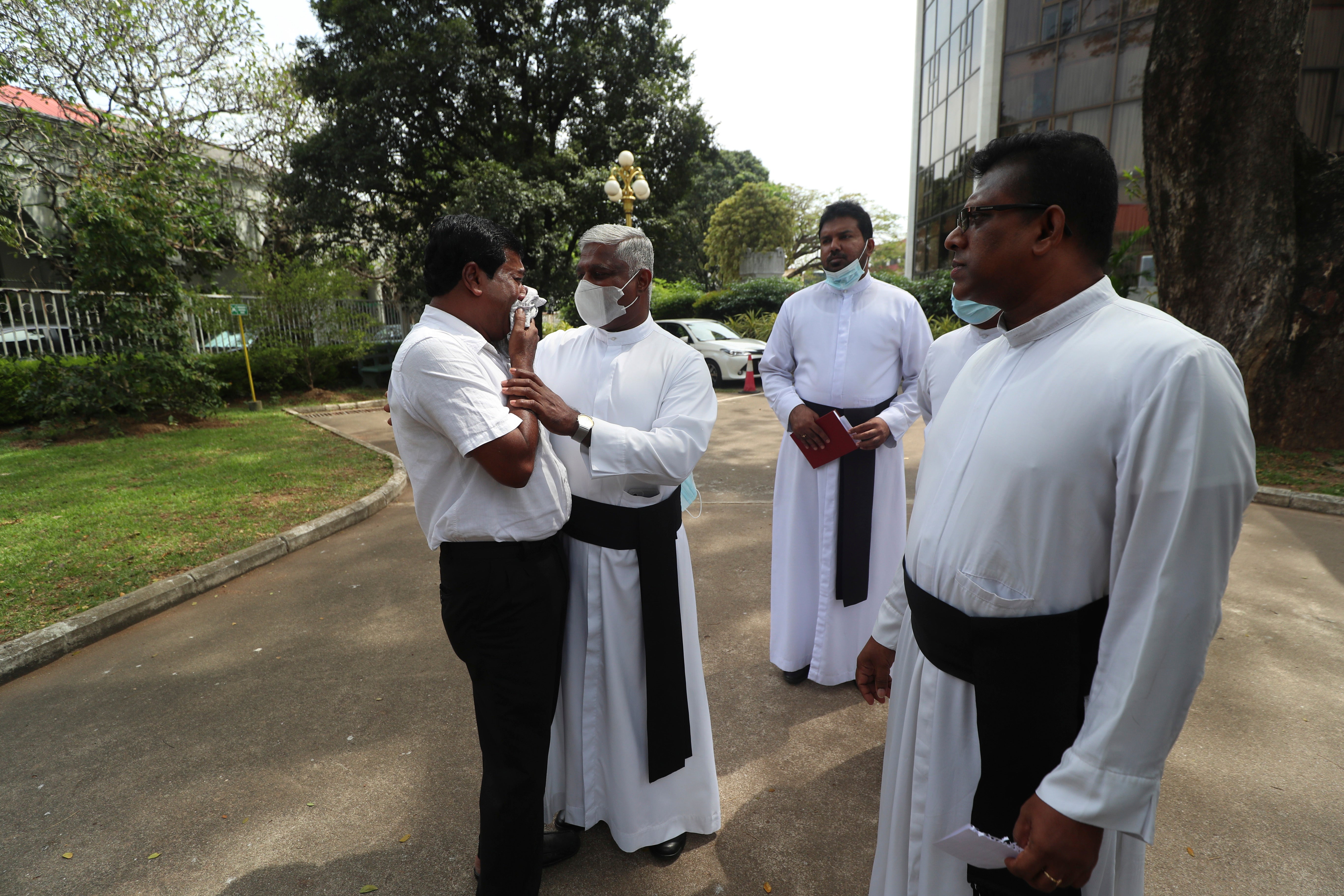Sri Lankan court orders ex-leader to pay victims of bombings
Sri Lanka’s Supreme Court has ruled that inaction by the country’s former president and four others led to Easter Sunday bomb attacks in 2019 that killed nearly 270 people and ordered them to pay compensation for violating the basic rights of the victims and their families

Your support helps us to tell the story
From reproductive rights to climate change to Big Tech, The Independent is on the ground when the story is developing. Whether it's investigating the financials of Elon Musk's pro-Trump PAC or producing our latest documentary, 'The A Word', which shines a light on the American women fighting for reproductive rights, we know how important it is to parse out the facts from the messaging.
At such a critical moment in US history, we need reporters on the ground. Your donation allows us to keep sending journalists to speak to both sides of the story.
The Independent is trusted by Americans across the entire political spectrum. And unlike many other quality news outlets, we choose not to lock Americans out of our reporting and analysis with paywalls. We believe quality journalism should be available to everyone, paid for by those who can afford it.
Your support makes all the difference.Sri Lanka’s Supreme Court ruled Thursday that inaction by the country’s former president and four others led to Easter Sunday bomb attacks in 2019 that killed nearly 270 people and ordered them to pay compensation for violating the basic rights of the victims and their families.
A seven-judge bench of the top court ordered former President Maithripala Sirisena to pay 100 million rupees ($273,300) from his personal funds. It also ordered the police chief, two top intelligence officials and the secretary to the ministry of defense at the time to pay a total of 210 million rupees ($574,000).
Two local Muslim groups that had pledged allegiance to the Islamic State group were accused of carrying out six near-simultaneous suicide bomb attacks targeting worshipers at Easter services at three churches and tourists eating breakfast at three top hotels.
A breakdown in communication caused by a rift between Sirisena and the then prime minister was blamed for the failure of authorities to act on near-specific foreign intelligence received prior to the attacks, which also wounded about 500 people.
The court said Sirisena, who was also defense minister and commander in chief of the armed forces, had not called regular meetings of the national security council and had omitted key personnel from the meetings he held.
“All this is a stark reality that strikes this court as a serious omission on the part of the then president,” the court said.
“This dismal failure on the part of former President Sirisena resulted in disastrous consequences for this country. Not only were lives lost and properties destroyed, but interracial tension and interethnic hatred began to raise their ugly heads, causing the very fabric of this nation to be broken,” it said.
“The due care with which the minister of defense should have exercised his wide powers in the greater good of the country was totally nonexistent according to the evidence that has been placed before this court,” it said.
A presidential commission earlier recommended criminal procedures against Sirisena for alleged negligence, but it has not been followed up.
The government has prosecuted several people in connection with the attacks, but leaders of the country's Catholic church say they suspect a larger conspiracy and are demanding that the leaders be revealed.